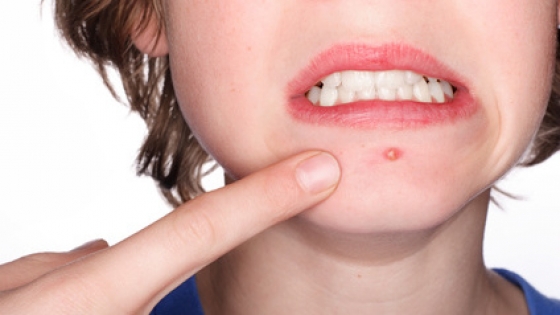Often times when you hear the word acne your mind immediately envisions a teenager in puberty; however acne can strike at any age. According to Brown University, there are around 17 million Americans that will suffer from acne at any given time. In addition, dermatologists have elaborated that between the ages of 11-30, three quarters of Americans will face this problem in life.
What is Acne?
Acne is the occurrence of infected or inflamed sebaceous glands in the epidermis. It is typically characterized by red pimples or pustules on the face; however acne can develop on the back, neck, chest, buttocks, shoulders and upper arms. There are several different types of acne including:
- Blackheads: these are visibly black pimples that appear on the surface of your skin.
- Whiteheads: these are small pimples that remain under the skin.
- Papules: small bumps, most commonly pink that are visible on skins surface.
- Pustules: common pimples on the skins surface that are red at their base and are filled with pus at the top.
- Nobules: visible on skins surface, embedded deep in the skin. Typically large, solid and painful.
- Cysts: tend to be very painful. Visible on skins surface and filled with pus.
What Causes Acne?
Unfortunately, like many other skin disorders and disease, we are not sure. While there is no known cause for acne, the consensus is that it can be linked to hormones. Typically, acne begins to develop with teenagers once their hormones begin to change with puberty. In addition, women who experience hormonal changes associated with their menstrual cycles have been known to suffer from acne.
How Do I care for My Acne Prone Skin?
It is important to find a skin care routine that works for you and stick to it. Here are a few steps you should implement in your regimen.
- Wash your face twice a day. Once in the morning and again at night prior to bed. Use a soap or cleanser that is hypoallergenic and free of harsh chemicals that can dry out or upset your skin.
- Use a moisturizer that promotes essential skin lipid replacement and ceramides for healing your skin barrier.
- Wash your hands frequently and avoid touching or picking at your face.
- Do not pick your nose. As ridiculous as it may seem to hear that, in truth, many people pick away. Your nasal cavities run the risk of housing Staphylococcus aureus, which can lead to staph infections.
- Do not, I repeat, do not, attempt to pop your pimples. Not only does popping your pimples pose the possibility for scarring but it also pushes the infection further down causing swelling and redness.
- Do not sleep with makeup on! Ladies, I know it is difficult to muster up the motivation to remove that makeup after a long day of work and motherly or wifely duties; however makeup will clog your pores and make acne worse.
- When using any acne medications limit your time spent in the sun, as you will be more prone for sunburn.
If acne persists or you suffer from extreme cases of it, consult with a reputable dermatologist. They can prescribe you medications that will assist in clearing up those dreadful and embarrassing outbreaks.
Dr. Cheryl Lee Eberting is a board certified dermatologist who has dedicated her career to research and treatment of skin ailments. She writes regularly on her Sensitive Skin Care blog.





